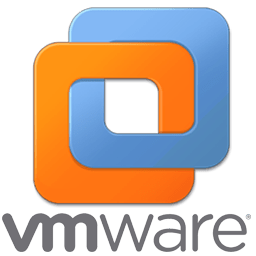How To Install VMware Tools on Ubuntu 22.04 LTS

In this tutorial, we will show you how to install VMware Tools on Ubuntu 22.04 LTS. For those of you who didn’t know, VMware Tools is a suite of utilities that enhances the performance of the virtual machine’s guest operating system and improves the management of the VM. It includes a number of tools, such as a virtual network driver to improve network performance, a time synchronization utility to keep the guest operating system’s clock synchronized with the host, and a utility to improve the display resolution and colors of the guest operating system.
This article assumes you have at least basic knowledge of Linux, know how to use the shell, and most importantly, you host your site on your own VPS. The installation is quite simple and assumes you are running in the root account, if not you may need to add ‘sudo‘ to the commands to get root privileges. I will show you the step-by-step installation of the VMware Tools on Ubuntu 22.04 (Jammy Jellyfish). You can follow the same instructions for Ubuntu 22.04 and any other Debian-based distribution like Linux Mint, Elementary OS, Pop!_OS, and more as well.
Prerequisites
- A server running one of the following operating systems: Ubuntu 22.04, 20.04, and any other Debian-based distribution like Linux Mint.
- It’s recommended that you use a fresh OS install to prevent any potential issues.
- SSH access to the server (or just open Terminal if you’re on a desktop).
- A
non-root sudo useror access to theroot user. We recommend acting as anon-root sudo user, however, as you can harm your system if you’re not careful when acting as the root.
Install VMware Tools on Ubuntu 22.04 LTS Jammy Jellyfish
Step 1. Before proceeding with the installation, it’s essential to ensure that your Ubuntu 22.04 system is up to date. Open a terminal and run the following command to update the package lists and upgrade any existing packages:
sudo apt update sudo apt upgrade
Next, check if you have any existing installations of VMware Tools or Open VM Tools by running the following command:
dpkg -l | grep open-vm-tools
If the output shows any installed packages related to VMware Tools or Open VM Tools, you may need to remove them before proceeding with the new installation.
Step 2. Installing VMware Tools on Ubuntu 22.04.
- Method 1: Install Open VM Tools Package
By default, VMware Tools is not available on Ubuntu 22.04 base repository. Now run the following command below to install the latest stable version of VMware Tools to your Ubuntu system:
### UBUNTU 22.04 SERVER ### sudo apt install open-vm-tools ### UBUNTU 22.04 DESKTOP ### sudo apt install open-vm-tools-desktop open-vm-tools
Alternatively, you can install the developer’s version if needed:
sudo apt install open-vm-tools-dev
Once the installation is complete, restart the VM to ensure that the changes take effect. After the VM has restarted, VMware Tools should be installed and ready to use. You can access the VMware Tools utilities by running the vmware-toolbox-cmd command from a terminal window.
- Method 2: Install via VMware Workstation GUI
Follow these steps to install VMware Tools on your Ubuntu 22.04 LTS guest virtual machine using the VMware Workstation GUI:
-
- Start the Ubuntu 22.04 LTS virtual machine in VMware Workstation.
- From the VMware Workstation menu, select “VM” > “Install VMware Tools”.
- The VMware Tools installer virtual disk will be mounted within the Ubuntu 22.04 LTS guest virtual machine.
- Open the file manager on your Ubuntu 22.04 LTS guest virtual machine and navigate to the mounted VMware Tools installer disk.
- Extract the installer files to a temporary directory on your Ubuntu 22.04 LTS guest virtual machine.
- Open a terminal and navigate to the extracted folder containing the VMware Tools installer files.
- Run the installer script by executing the following command:
sudo ./vmware-install.pl
-
- Follow the prompts and instructions provided by the installer to complete the installation process.
- Once the installation is complete, reboot your Ubuntu 22.04 LTS virtual machine for the changes to take effect.
Step 3. Troubleshooting
While the installation of VMware Tools on Ubuntu 22.04 LTS is generally straightforward, you may encounter some issues or errors during the process. Here are a few troubleshooting tips to help you resolve common problems:
-
- Check VMware Workstation Logs: If you encounter any errors or issues during the installation, it’s a good idea to check the VMware Workstation logs for more information. The logs can provide valuable insights into the root cause of the problem and help you troubleshoot more effectively.
- Try a Different Installation Method: If one installation method fails or encounters issues, consider trying one of the other methods outlined in this guide. Sometimes, a different approach can resolve the problem.
- Update VMware Workstation: Ensure that you’re using the latest version of VMware Workstation. Newer versions often include bug fixes and improvements that can resolve installation issues or compatibility problems.
- Verify Ubuntu 22.04 LTS Guest Additions: If you’re still experiencing issues after installing VMware Tools, you may want to check if the Ubuntu 22.04 LTS Guest Additions are installed correctly. Guest Additions are additional drivers and utilities provided by Ubuntu to enhance the integration with virtualization software like VMware Workstation.
- Seek Community Support: If you’re unable to resolve the issue, consider seeking help from the VMware or Ubuntu communities. There are various forums, mailing lists, and online resources where you can find solutions or get assistance from experienced users and experts.
Congratulations! You have successfully installed VMware Tools. Thanks for using this tutorial for installing VMware Tools on Ubuntu 22.04 LTS Jammy Jellyfish system. For additional help or useful information, we recommend you check the VMware website.